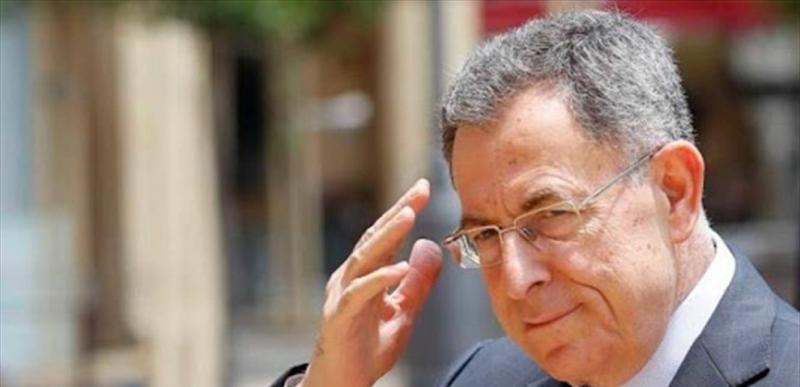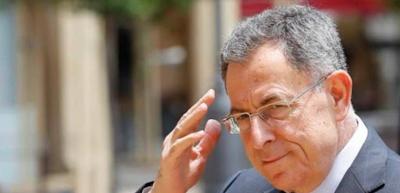The newspaper Asharq Al-Awsat writes: The second electoral district in Beirut, significant for the Sunni community, remains an unprecedented focus of interest accompanying the ongoing consultations to fill the parliamentary vacancy resulting from the reluctance of the Future Movement leader, former Prime Minister Saad Hariri, to run in the elections. These consultations aim to prevent the "Resistance Axis" led by Hezbollah and its allies from dominating the majority of parliamentary seats, in coordination with the Islamic Charitable Projects Association (the Ahbash), which is preparing to run independently but is politically aligned with Hezbollah, placing them in the same trench as the Syrian regime.
Former Prime Minister Fouad al-Saniora is striving to fill the void left by Hariri, facing a difficult task, and is overseeing communications to create political conditions conducive to forming a list of candidates that meets the criteria to enter a balanced contest against the “Shia duo” list and the Ahbash list, in addition to a third list led by MP Fouad Makhzoumi. Meanwhile, the civil movement seems nearly absent from the electoral scene unless it prepares to enter the battle with a unified list, planning to announce it once the nomination window closes, at midnight on Tuesday, before the deadline for registering electoral lists on April 4.
Although Al-Saniora does not seek to form a candidate list to reclaim the "stolen" state from Hezbollah, as he claims, he is facilitating communications and coordinating them. However, the reluctance of MP Rola Tabsh, a member of the Future bloc, has political implications, raising concerns that it could lead to a decrease in voter turnout. While Hariri has not called on his supporters and the “Blue Movement” public to boycott the elections, he has refrained from urging them to vote in large numbers.
Tabsh's reluctance, being one of Hariri's closest associates, can be interpreted as an indirect call for a boycott of the elections, thus undermining Al-Saniora's role in unifying the Sunni street and diminishing the effects of his efforts to prevent the “Resistance Axis” led by Hezbollah and its allies from winning the largest share of the 11 seats allotted to Beirut II.
Moreover, Tabsh's withdrawal itself can be seen as a targeting of Al-Saniora's role, which cannot be detached from the Future Movement's discomfort with his position, even if they avoid making any public statements regarding this. Some who are associated with him privately express that there’s no disagreement with Al-Saniora regarding facing Hezbollah's project; however, they do not intend for the “Blue Movement” audience to become an electoral machine providing political services for free to those who equate Hariri with Hezbollah and President Michel Aoun and his political movement, highlighting the tense relationship between the Future Movement and the Lebanese Forces Party following the failure of reconciliation attempts.
Thus, the political circles opposed to Hezbollah fear a decline in voter turnout within the Sunni community, which would enhance the risk of Hezbollah securing the majority of parliamentary seats through its under-the-table alliance with the Ahbash and some factions within the “Resistance Brigades,” warning against the elections proceeding with whoever shows up, in the absence of substantive Sunni electoral influence.
Consequently, while the public confrontation appears to be limited to the list sponsored by Al-Saniora and its competitors, the other aspect reveals a silent disagreement between Al-Saniora and the Future Movement, contrary to public claims. Hariri has decided to vacate the electoral field, intending to hold others responsible for leading the country to collapse, specifically those who turned against him and hindered the mission of the 14 March forces, previously enabling their victory in earlier elections to form a majority government, leaving the minority to oppose it.
In this context, sources affiliated with the Future Movement indicate that Hariri's decision to abstain from the contest does not target Al-Saniora, but rather the group that hindered the project of building the state in favor of a statelet, and through this, foreign entities that attempted to equate those wishing to halt the collapse with those obstructing the formation of the government in light of his commitment to the French initiative, which forced him to decline to form it.
On the other hand, other sources express fear of the “Resistance Axis” taking control of Beirut, unlike other electoral districts where Hezbollah lacks sufficient strength, especially with the absence of the Future Movement from the electoral competition, as the reluctance of candidates representing it could reflect a similar trend among its broader audience in voter turnout.
Asharq Al-Awsat learned that Al-Saniora has made significant progress toward finalizing the candidate list he personally sponsors with Prime Minister Najib Mikati, accompanied by former Prime Minister Tamam Salam, who is informed about Al-Saniora's consultations without committing to any of the political choices, having been the first to abstain from running in the elections.
It is rumored that the core of the list sponsored by Al-Saniora is composed of former ministers: Judge Khaled Qabbani, university professor Hassan Mneimneh, academic Lina Tannir, and lawyer Majed Damashqi. It is also likely to include former MP for the Islamic Group Imad al-Hout (representing Sunnis), university professor Mona Fayyad (representing Shiites), MP Faisal Al-Sayegh, candidate from the Democratic Gathering for the Druze, Orthodox Michel Falakh, and evangelical George Haddad, without excluding modifications to the candidates by including representatives from the largest Beirut families with whom Al-Saniora is in contact, in hopes of mobilizing the Sunni street to prevent the “Resistance Axis” from securing the majority of the seats.
Regarding the electoral districts in northern Lebanon, particularly those with significant Sunni weight, Asharq Al-Awsat learned from sources following the consultations between Mikati and Al-Saniora that they met yesterday morning in the presence of former Minister Ahmad Fatfat. These sources stated that the discussions primarily revolved around forming a united list for the tripartite district of Tripoli-Dinnieh-Minnieh (11 seats), with Mikati expected to play a significant role in its formation, even though he maintains his decision not to run in the elections.
According to preliminary information, Mikati and Al-Saniora are working to screen the candidate names by excluding any candidates that might challenge Hariri, provided that this does not extend to the former deputy head of the Future Movement Mustafa Alloush, who submitted his resignation to Hariri, though excluding him could complicate the alliance. Alloush is currently in touch with the Islamic Group and intends to collaborate in Tripoli with candidates from the new faces involved in the protests organized by the civil movement in the northern capital.
The question remains: will a consensus be reached between Al-Saniora and Mikati, who is still the most capable of reshuffling the cards to form a coalition list, given his known skill in navigating complexities? Unless there are considerations he cannot overlook, compelling him to prepare a mix of candidates aimed at reconciling opposites, without causing regional discomfort; especially since he has not ceased communicating with both internal and external parties to pass the time with minimal political costs, ensuring the elections proceed on schedule.




